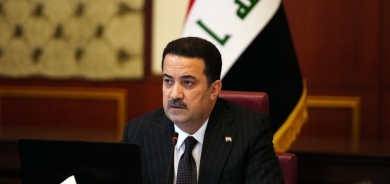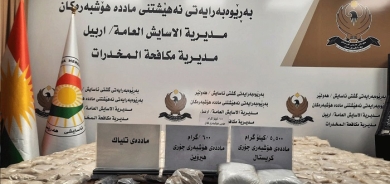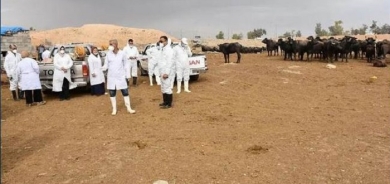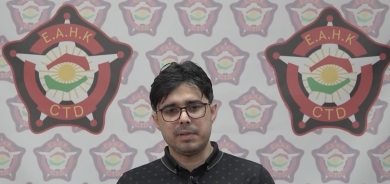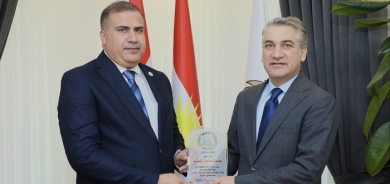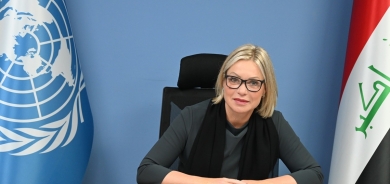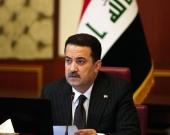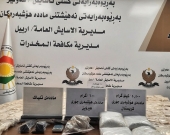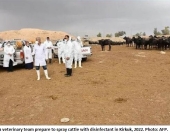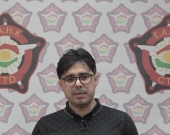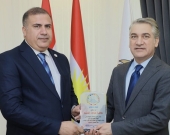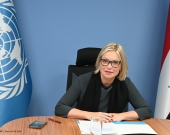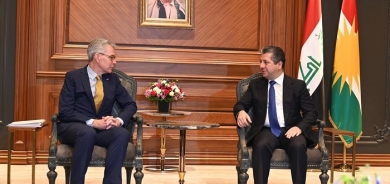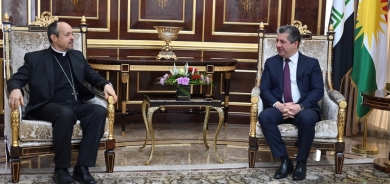More deaths as Syrian forces fire on Damascus protests; global community weighs steps
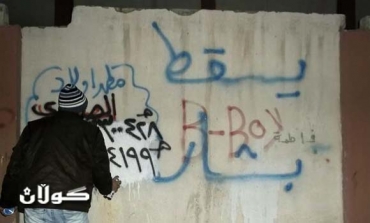
Demonstrations and clashes with security forces have hit Damascus in the past week, undermining President Bashar al-Assad's argument that an 11-month uprising has been the work of saboteurs and limited mainly to the provinces.
Syrian tanks and troops massed Monday outside the resistance stronghold of Homs for a possible ground assault that one activist warned could unleash a new round of fierce and bloody urban combat even as the Red Cross tried to broker a cease-fire to allow emergency aid in, The Associated Press reported.
A flood of military reinforcements has been a prelude to previous offensives by President Assad’s regime, which has tried to use its overwhelming firepower to crush an opposition that has been bolstered by defecting soldiers and hardened by 11 months of street battles.
“The human loss is going to be huge if they retake Baba Amro,” said Rami Abdul-Rahman, who heads the Britain-based activist group Syrian Observatory for Human Rights.
The opposition has lionized it as “Syria’s Misrata” after the Libyan city where rebels fought off a brutal government siege. Assad’s regime wants desperately to erase the embarrassing defiance in Syria’s third-largest city after weeks of shelling, including a barrage of mortars that killed up to 200 people earlier this month. At least nine people were killed in shelling Monday, activists told AP.
Another massive death toll would only bring further international isolation on Assad from Western and Arab leaders.
International diplomacy showed no sign of finding a solution, as Western powers and the Arab League prepared a meeting of “Friends of Syria” on Friday to pressure Assad to step down, while Russia and China backed Assad’s reform plans, derided by Syria’s opposition.
“There were hundreds of demonstrators at the main square of Hajar al-Aswad (neighborhood), and suddenly buses of security police and shabbiha (pro-Assad militia) turned up and started firing into the crowd,” activist Abu Abdallah told Reuters by telephone.
He said the four wounded were taken to be treated in homes.
Footage posted on YouTube, purportedly taken before the shooting, showed a crowd marching in Hajar al-Aswad carrying placards in support of the besieged city of Homs and singing “Eyes are shedding tears for the martyrs among Syria’s youth.”
Elsewhere, an activists’ group in Kfar Tkharim near the Turkish border said rebels had killed five soldiers and captured two in an ambush on a government column.
Opposition activists said five people had been killed in government shelling of Homs’ Baba Amro district on Monday, adding to a reported death toll of several hundred since the operation began there on Feb. 3.
Activists in the western city of Hama said troops, police and militias had set up dozens of roadblocks, cutting neighborhoods off from each other.
Ahmed Ramadan, a member of the executive bureau (leadership committee) of the Syrian National Council, the main opposition group, said Assad loyalists killed his brother Mahmoud when they hit his car with 27 bullets in his home northern city of Aleppo.
The official SANA news agency said a lieutenant colonel and a sergeant were killed in a clash with an “armed terrorist group” in Athraya, central Hama province.
The Geneva-based International Committee of the Red Cross, the only international organization deploying aid workers in Syria, said it was in talks with the authorities and opposition fighters for a ceasefire to bring life-saving aid to civilians.
“The International Committee of the Red Cross is exploring several possibilities for delivering urgently needed humanitarian aid,” said ICRC spokesman Bijan Farnoudi, according to AFP.
“These include the cessation of fight and ICRC access to the people in need in the most affected areas to facilitate swift Syrian Arab Red Crescent.”
China’s influential People’s Daily newspaper warned that any Western support for the rebels would trigger a “large-scale civil war.”
But in Cairo, top Republican US Senator John McCain called for the opposition to be given weapons to help “defend themselves,” while ruling out direct U.S. aid.
“"We have seen in Libya, and we have seen in previous conflicts there are ways to get weapons to people so they can defend themselves,” McCain said.
Diplomatic sources said it was seeking a two-hour ceasefire in hotspots including Homs. Residents there say they are running out of food, water and medicine after weeks of bombardment by Assad’s forces.
Western and Arab countries who are seeking Assad’s downfall are preparing an explicit gesture of support for his opponents.
U.S. Secretary of State Hillary Clinton said the “Friends of Syria” group, meeting in Tunisia, would “demonstrate that Assad's regime is increasingly isolated and that the brave Syrian people need our support and solidarity.”
But Assad, who has received support from Russia, China and Iran, is forging ahead with plans to hold a referendum on Sunday on a new constitution, which the opposition dismisses as a stunt to cling to power.
“We’ll send a clear message to Russia, China and others who are still unsure about how to handle the increasing violence but are up until now unfortunately making the wrong choices,” Clinton said in Mexico at a meeting of the “G20” world powers.
Germany said the European Union would probably impose more sanctions against Syria in the coming week. Western sanctions have so far had little impact without support from Russia and China for measures at the U.N. Security Council.
Assad met a senior Russian politician in Damascus on Monday, who reiterated Moscow’s support for his self-styled reform program and spoke out against any foreign intervention. China accused Western countries of stirring up civil war.
Nevertheless, the Arab League, which has suspended Syria and called for Assad to step down, said there were signs that Russia and China could temper their support for him.
“There are indications coming from China and to some extent from Russia that there may be a change in position,” League Secretary-General Nabil al-Araby told a news conference in Cairo, according to Reuters.
Russia and China vetoed a draft U.N. Security Council resolution this month that would have backed an Arab plan calling for Assad to step down. The two countries also voted against a non-binding resolution in the General Assembly last week that backed the Arab plan.
Russia’s ambassador to the United Nations said Moscow would soon offer proposals on humanitarian relief for Syria in the Security Council, but gave few details.
“It seems to me that it would be possible now to take concrete steps aimed at resolving humanitarian issues, relying on the fact that very recently, a few days ago, Damascus allowed the International Red Cross to deliver humanitarian aid to certain regions that ended up in the conflict zone,” Vitaly Churkin told state-run Rossiya-24 television in an interview.
“It can be expected that in the coming days, Russia will put forward certain proposals on that account in the Security Council.”
Assad’s government says it is battling a foreign-backed insurgency by terrorists, and that it is are committed to meeting real demand for democracy with the referendum on a new constitution, leading to multi-party elections within 90 days.
The West and Syrian opposition figures have dismissed the plan as a joke, saying it is impossible to have a valid election amid the continuing repression.
Clashes between military rebels and Syrian forces are growing more frequent and the defectors have managed to take control of small pieces of territory in the north as well as parts of Homs province, which is Syria’s largest stretching from the border with Lebanon in the west to Iraq and Jordan in the east. Increasingly, Syria appears to be careening toward an all-out civil war.
Activists believe Assad may be trying to subdue Homs -- an important stronghold for anti-Assad groups -- before a planned referendum Sunday on a new constitution. The charter would allow a bigger role for political opposition to challenge Assad’s Baath Party, which has controlled Syria since a 1963 coup.
But the leaders of the uprising have dismissed the referendum as an attempt at superficial reforms that do nothing to crack the regime's hold on power.
“We have called for a boycott of the referendum which cannot be held while parts of Syria are a war zone,” Omar Idilbi, a Beirut-based member of the opposition Syrian National Council, told AP.
The U.N. last gave a death toll for the conflict in January, saying 5,400 had been killed in 2011 alone. But hundreds more have been killed since, according to activist groups. The group Local Coordination Committees says more than 7,300 have been killed since March of last year. There is no way to independently verify the numbers, however, as Syria bans almost all foreign journalists and human rights organizations.
(Reuters)

